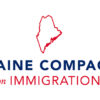HIGH-SKILLED IMMIGRANTS IN MICHIGAN
Date: April 23, 2015
Learn more about the need for high-skilled immigration reform at www.LetPJStay.com
MICHIGAN FACES A LARGE STEM SHORTAGE
- Demand for STEM workers is outpacing supply: The Center for Michigan, an independent, nonpartisan think tank, revealed that Michigan graduated 20 percent too few computer and math professionals and 14 percent too few health care professionals in 2009 – 2010.
- As STEM fields grow, this problem will likely get worse: Michigan will need to fill 227,790 new STEM jobs by 2020.
- The healthcare industry in particular will be affected by a shortfall of STEM workers: The federal government estimates Michigan will be short 18,303 registered nurses (RN) by 2020, leaving 22.1 percent of the state’s RN positions unfilled.
IMMIGRANTS ARE FILLING STEM SHORTAGES IN MICHIGAN
- Immigrants are over-represented in the STEM workforce: Immigrants are 6.1 percent of Michigan’s population, but in 2010, 20.8 percent of STEM workers with an advanced degree in Michigan were foreign-born.
- Immigrants play a critical role in the healthcare industry: In 2012, 29.1 percent of physicians in Michigan had graduated from a foreign medical school, a population that is overwhelmingly immigrant.
IMMIGRANTS INCREASINGLY POWER MICHIGAN’S INNOVATION ECONOMY
- Immigrants are more likely to study STEM than the native-born: In 2009, 40.2 percent of the students earning master’s or PhD degrees in STEM fields from Michigan’s research-intensive universities were foreign-born.
- Immigrants are inventing the products that will drive innovation over the coming decades: In 2011, 74 percent of patents awarded to the University of Michigan system had at least one foreign-born inventor, and 54 percent had at least one foreign-born student, postdoctoral fellow, or researcher, groups with no clear path to stay in the United States after graduation. In FY 2010, the university system earned $39.8 million in patent licensure revenue.
HIGH-SKILLED IMMIGRATION REFORM WOULD HELP MICHIGAN’S COMPANIES COMPETE AND CREATE AMERICAN JOBS
- High-skilled visa holders create jobs for U.S.-born workers: The new H-1B visas awarded to Michigan between 2010 and 2013 will translate into 21,803 new jobs for U.S.-born workers in the state by 2020.
- Our visa system is costing jobs and revenue: Firm-level data from the 2007 and 2008 H-1B lotteries shows that the H-1B caps from those two years alone cost U.S.-born tech workers in the Detroit metropolitan area as many as 14,994 additional jobs and as much as $135.9 million in aggregate annual earnings by 2010.


